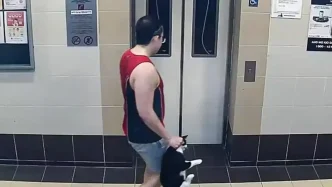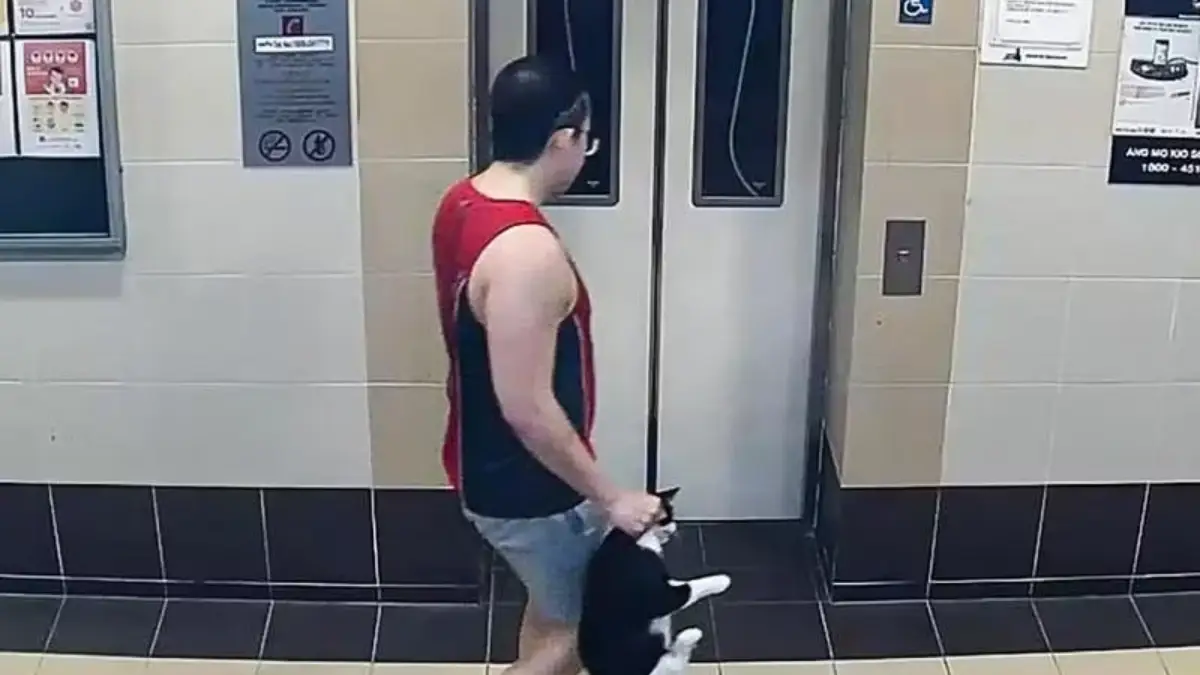In a landmark ruling, Singapore’s High Court has nearly doubled the jail sentence of Barrie Lin Pengli, a 33-year-old man convicted of abusing and killing cats, from 14 months to 27 months. The decision, handed down on July 9, 2025, sends a powerful message about the city-state’s stance on animal cruelty, reflecting a growing judicial emphasis on deterrence amid rising welfare concerns.
A Case of Calculated Cruelty
The case against Barrie Lin Pengli shocked Singaporeans with its sheer brutality. Between 2019 and 2020, Lin targeted community cats in the Ang Mo Kio Housing Board (HDB) estate, a known haven for strays. His actions were not impulsive but deliberate, as noted by Justice Vincent Hoong during the appeal hearing. Lin sought out these animals, exploiting their vulnerability for what the judge described as perverse pleasure.
Lin’s methods escalated over time. Initially, he kicked cats to vent emotional distress, but his abuse grew more sinister. He began abducting cats, stuffing them into small resealable bags where they struggled to breathe, and later released some while killing others. On April 21, 2020, at around 3:30 a.m., Lin captured a cat at Block 572 Ang Mo Kio Avenue 3, dangled it over the 12th-floor parapet to terrorize it, and then dropped it to its death. Hours later, at Block 207 Ang Mo Kio Avenue 1, he abducted another cat, confined it in a waterproof bag, and eventually released it.
Weeks later, on May 15, 2020, Lin repeated his horrific pattern. At Block 645 Ang Mo Kio Avenue 6, he caught a cat, carried it to the eighth floor, dangled it over the edge, and let it fall. Though the cat survived the initial drop, Lin stomped on its neck, killing it. An eyewitness reported the incident to the police, leading to his arrest after the cat’s body was found discarded in a dustbin. Even after being released on bail, Lin’s cruelty persisted. On December 26, 2021, following a Christmas gathering at his home, he returned to Block 645 to test his self-control, slamming a cat against a wall twice. The injured feline, later rescued by community cat feeders, required extensive medical treatment and a 14-day hospitalization.
High Court’s Stern Rebuke
Lin pleaded guilty to three counts of animal cruelty in October 2024, initially receiving a 14-month sentence from a district judge in February 2025, alongside a one-year ban on owning animals post-release. However, the prosecution appealed, arguing the sentence was insufficient given the severity of the offenses. Deputy Public Prosecutor Isaac Tan pushed for a two-year jail term, aligning with their original submission before the district court.
Justice Hoong, in a detailed hour-long address on July 9, 2025, agreed with the prosecution, labeling Lin’s actions as among the most heinous cases of animal cruelty to come before Singapore’s courts. He criticized the district judge’s decision to consider Lin’s major depressive disorder as a significant mitigating factor, stating that the condition did not impair Lin’s ability to exercise self-control or comprehend the wrongfulness of his actions. The High Court also highlighted Lin’s attempts to conceal his crimes by disposing of the cats’ carcasses far from the scenes, further demonstrating calculated intent.
Justice Hoong emphasized the broader societal implications of such cases. Quoting Mahatma Gandhi—“The greatness of a nation and its moral progress can be judged by the way its animals are treated”—he underscored that animals, as a vulnerable class, cannot seek help or legal recourse when harmed. He added, “Animal cruelty has no place in a just and humane society and will be met with the full force of the law.”
Rising Tide of Animal Welfare Concerns
The ruling comes against a backdrop of increasing animal cruelty and welfare cases in Singapore. Justice Hoong pointed to data from the National Parks Board (NParks), which investigated an average of 1,200 alleged cases annually between 2019 and 2023. Despite legislative changes in 2014 that raised the maximum penalty for animal cruelty from a $10,000 fine and one year’s jail to a $15,000 fine and 18 months’ imprisonment, the prevalence of such incidents has not declined. The judge suggested that lenient sentencing in past cases may have failed to deter potential offenders, necessitating harsher penalties to reinforce societal norms.
Following the verdict, NParks issued a statement reaffirming its commitment to animal welfare. The agency’s Animal and Veterinary Service pledged to continue collaborating with communities to protect animals, signaling a multi-pronged approach to tackling cruelty beyond judicial measures.
Defense and Public Reaction
Lin’s lawyer, Azri Imran Tan, acknowledged the reprehensible nature of his client’s actions during the appeal. However, he cautioned against allowing emotional gravitas to dictate the outcome, arguing for a balanced consideration of the case. Despite this plea, the High Court prioritized deterrence over personal mitigating factors, reflecting a shift in judicial perspective on animal cruelty.
The case has sparked significant public outcry in Singapore, where community cats are often seen as part of neighborhood life. Many residents and animal welfare advocates have expressed relief at the tougher sentence, viewing it as a step toward greater protection for vulnerable animals. The graphic nature of Lin’s actions, coupled with the deliberate targeting of defenseless creatures, has fueled calls for even stricter laws and enhanced community vigilance.
Legal and Societal Implications
The near-doubling of Lin’s sentence marks a pivotal moment in Singapore’s legal approach to animal cruelty. It reflects a growing recognition of animals as sentient beings deserving of protection, rather than mere property. Justice Hoong’s remarks on deterrence suggest that future cases may see similarly severe penalties, particularly for offenses involving premeditation or extreme violence.
Beyond the courtroom, the case raises questions about societal attitudes toward mental health and animal welfare. While Lin’s diagnosis of major depressive disorder was noted—improving with treatment after his arrest—it did not sway the court’s decision. This stance could prompt discussions on how mental health issues intersect with criminal accountability, especially in cases involving harm to others, whether human or animal.
Moreover, the ruling underscores the role of community action in combating cruelty. The eyewitness report that led to Lin’s arrest and the efforts of cat feeders who saved an injured animal highlight the importance of public engagement. In densely populated urban areas like Singapore’s HDB estates, where community cats roam freely, such vigilance could prove critical in preventing future abuses.
A Forward-Looking Stance
As Singapore grapples with balancing urban development and animal welfare, the High Court’s decision in Barrie Lin Pengli’s case sets a precedent for zero tolerance toward cruelty. It also challenges lawmakers, enforcement agencies, and citizens to rethink strategies for protecting the voiceless. Will this ruling mark the beginning of a broader cultural shift, or will the underlying issues fueling such acts persist? Only time will tell, but for now, the message is clear: harm to animals will face uncompromising consequences.
















